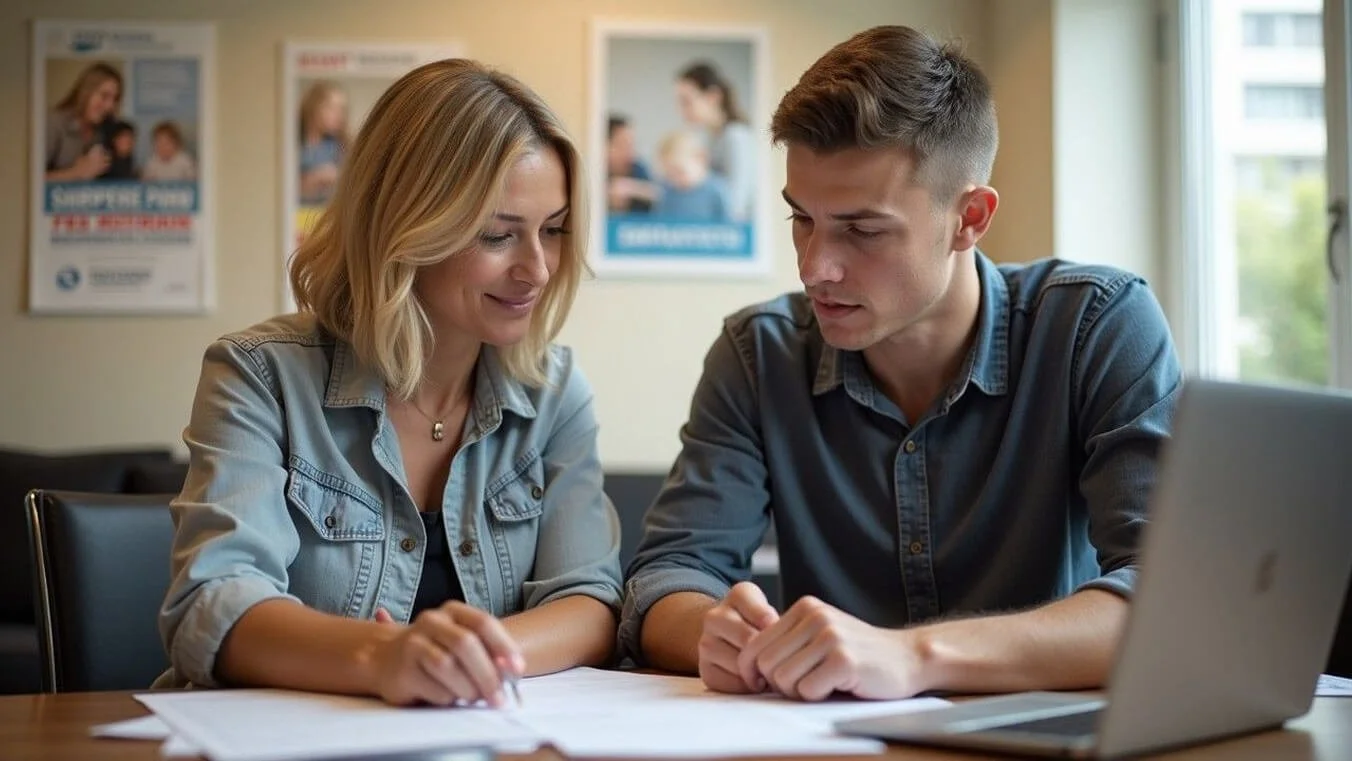Nonprofits That Support Veterans: Accessing Specialist Services Beyond DVA
For many Australian veterans, transitioning to civilian life presents significant challenges that extend beyond what the Department of Veterans' Affairs (DVA) services alone can address. Nonprofits that support veterans offer specialised assistance, filling crucial gaps in the support network and providing targeted help for everything from mental health to housing and employment. These organisations work alongside government services to create a more comprehensive support system for those who've served.
Understanding the specific types of assistance nonprofits provide can make a difference in accessing the right support when needed. Unfortunately, many of these free services contribute to the current challenges with DVA by lodging unnecessary claims and failing to respond effectively to both veterans and the DVA.
Start Your DVA Claim Today
We’ve helped 7,000+ veterans claim $800M+ in Permanent Impairment payouts. With zero upfront fees, you only pay for successful claims.
Understanding Nonprofits Supporting Veterans in Australia
The Australian veteran support landscape includes a diverse range of nonprofit organisations that operate alongside government services. These nonprofits exist because they recognise that veterans often face complex challenges requiring specialised support beyond what standard government services provide.
Types of Veteran Support Organisations
Veteran support organisations in Australia generally fall into several categories:
Ex-Service Organisations (ESOs): These include RSL sub-branches and similar groups with historical ties to military service
Mental Health Specialists: Organisations focused specifically on psychological wellbeing and trauma support
Housing and Financial Support Groups: Nonprofits addressing homelessness and financial hardship among veterans
Employment and Skills Transition Services: Organisations helping veterans translate military skills to civilian careers
Family Support Services: Groups supporting the families and dependents of veterans
According to the Department of Veterans' Affairs, there are over 3,000 ESOs and related organisations throughout Australia. This extensive network forms a crucial support system for veterans beyond formal government services.
How These Organisations Complement DVA Services
While DVA provides essential healthcare services alongside other entitlements through the Gold and White Cards and financial support through Permanent Impairment Claims, nonprofits deliver services that fill important gaps:
Immediate crisis support without lengthy approval processes
Peer-to-peer networks that create a sense of belonging and understanding
Specialised programs tailored to specific veteran communities
Advocacy support to help navigate DVA claims and government services
Community-based activities that reduce isolation
Key Nonprofit Services for Veterans
Nonprofit organisations provide a range of specialised services addressing the unique needs of veterans. These services often operate with more flexibility than government programs, allowing them to adapt quickly to emerging needs in the veteran community.
Mental Health and Wellbeing Support
Mental health remains one of the most critical areas where nonprofits provide essential support. Veterans experience depression and anxiety at higher rates than the general population, with approximately 1 in 3 transitioning ADF members experiencing a mental health condition.
Key nonprofits in this space include:
Open Arms - Veterans & Families Counselling: Provides free counselling and support services to veterans and their families
Soldier On: Offers psychological support services and social connection programs
Lifeline for Veterans: Provides crisis support specifically tailored to veterans' needs
These organisations often employ counsellors and psychologists with specific training in military trauma and transition challenges, making them particularly valuable for veterans experiencing PTSD, depression, or adjustment difficulties.
Financial and Housing Assistance
Housing insecurity and financial hardship affect many veterans, particularly those with service-related injuries or mental health conditions. While DVA offers certain financial support through incapacity payments and other programs, nonprofits often provide more immediate assistance.
Organisations providing financial and housing support include:
RSL DefenceCare: Offers financial assistance, housing support, and claims help
Legacy Australia: Provides financial support to families of deceased veterans
The Australian Housing and Urban Research Institute reports that veterans are overrepresented in homelessness statistics, highlighting the importance of these specialised housing services.
Employment and Career Transition
Finding meaningful employment represents one of the most significant challenges for veterans transitioning to civilian life. While DVA rehabilitation programs offer some assistance, nonprofits often provide more comprehensive career support.
Key employment-focused nonprofits include:
Soldier On Pathways Program: Connects veterans with employment opportunities
ADF Transition: While government-run, it partners with nonprofits
These organisations help veterans translate military skills to civilian qualifications, create networks with veteran-friendly employers, and provide ongoing mentorship during career transitions.
Community and Social Connection
Isolation and loss of identity frequently impact veterans after leaving service. Community-focused nonprofits help rebuild the sense of belonging and purpose that military service provided.
Organisations focusing on community connection include:
Mates4Mates: Offers social connection activities and physical rehabilitation
Team Rubicon Australia: Engages veterans in disaster response and community service
Major Veteran Support Nonprofits in Australia
Australia has numerous nonprofits supporting veterans, each with different specialisations and service offerings. Understanding the specific focus of each organisation can help veterans connect with the most appropriate support.
RSL and Ex-Service Organisations
The Returned and Services League (RSL) represents one of Australia's oldest and largest veteran support networks. With sub-branches across the country, RSL provides diverse services including:
Advocacy for DVA claims and entitlements
Welfare checks and social support
Financial assistance and emergency relief
Employment programs
Commemoration and community activities
Other significant Ex-Service Organisations include:
Vietnam Veterans Association of Australia: Specialising in support for Vietnam veterans
Defence Force Welfare Association: Advocating for fair treatment of current and former defence personnel
Naval Association of Australia: Supporting naval veterans and their families
These organisations often have deep connections within local communities and can provide personalised support based on local knowledge and resources.
Mental Health Focused Organisations
Several nonprofits specialise exclusively in mental health support for veterans, offering services tailored to military-related trauma and transition challenges:
Open Arms - Veterans & Families Counselling: Founded as the Vietnam Veterans Counselling Service, now providing mental health support to all veterans
Phoenix Australia: Centre for Posttraumatic Mental Health, conducting research and providing specialised trauma treatments
Survive to Thrive Nation: Peer support and resilience programs for veterans and first responders
According to the Australian Institute of Health and Welfare, the suicide rate for ex-serving males is 24% higher than for Australian men generally, highlighting the critical importance of these specialised mental health services.
Housing and Financial Support Groups
Veterans experiencing financial hardship or housing insecurity can access support from specialised nonprofits:
RSL Financial Services: Offering financial counselling and emergency assistance
Legacy Australia: Supporting families of deceased veterans with financial assistance
These organisations often work closely with DVA housing entitlement programs to create comprehensive support packages for veterans in need.
Specialised Support Services
Some nonprofits focus on specific veteran populations or particular types of assistance:
Bravery Trust: Financial support for veterans with injuries or illnesses.
Young Veterans: Supporting the younger generation of veterans
Veterans' Care Association: Holistic healing programs, including Timor Awakening
Assistance Dogs Australia: Providing service dogs for veterans with PTSD
These specialised services can address unique needs that broader programs might not cover adequately.
How to Access Nonprofit Support as a Veteran
Navigating the nonprofit landscape can initially seem overwhelming. However, there are several approaches to finding and accessing the right support for your situation.
Finding the Right Support Organisation
To identify the most appropriate nonprofit for your needs:
Define your specific needs: Whether it's mental health, housing, employment, or community connection
Use online directories: Resources like the DVA Directory of Service Providers can help locate services
Speak with advocates: Veterans' advocates can recommend appropriate services
Ask peers - Other veterans often have firsthand experience with various support organisations
Remember that most veterans benefit from multiple forms of support, so don't limit yourself to just one organisation. But if you want to seek expert advice and guidance, work with professionals like Veterans First Consulting, who understand the challenges of accessing the right support that meets your specific needs.
Eligibility Requirements for Different Services
Eligibility varies widely among veteran support nonprofits:
Some require formal veteran status with a service record
Others extend services to anyone who has served, regardless of length or type of service
Many include family members and dependents in their support
Some focus on specific conflicts or service periods
Certain financial assistance programs may have income requirements
Coordinating Nonprofit Support with DVA Benefits
For optimal support, it's important to coordinate nonprofit services with your DVA entitlements:
Use nonprofits for immediate needs while waiting for DVA claims decisions
Seek advocacy support from nonprofits to help navigate DVA processes
Inform nonprofits about your DVA status to avoid duplication of services
Consider how private services complement your DVA Gold or White Card coverage
Ask organisations about their experience working alongside DVA benefits
Many veterans find that a combination of DVA benefits and nonprofit support provides the most comprehensive care. Organisations like Veterans First Consulting can help you develop a strategy that maximises all available resources.
Finding the Right Support for Your Veteran Journey
Building an effective support network requires engaging with services that address your specific needs. While DVA provides essential financial compensation and healthcare through programs like Permanent Impairment Claims and the card system, nonprofits deliver personal connection, immediate assistance, and specialised programs.
Remember, seeking help demonstrates strength, not weakness—Australia's veteran support organisations exist specifically to honour your service and ensure your wellbeing. Whether you're facing mental health challenges, financial hardship, or missing the camaraderie of service life, dedicated organisations are ready to support your journey.
Receive expert guidance to help you find the right support for your DVA claims. Work with professionals to help you navigate the claims process to secure your benefits. Contact Veterans First Consulting today.
Simplify Your DVA Claim: Get the Compensation You Deserve
Veterans First Consulting has secured $800M+ in DVA claims for 7,000+ veterans. Let us handle your new claim or reassessment. With zero upfront fees, you only pay for successful claims.




